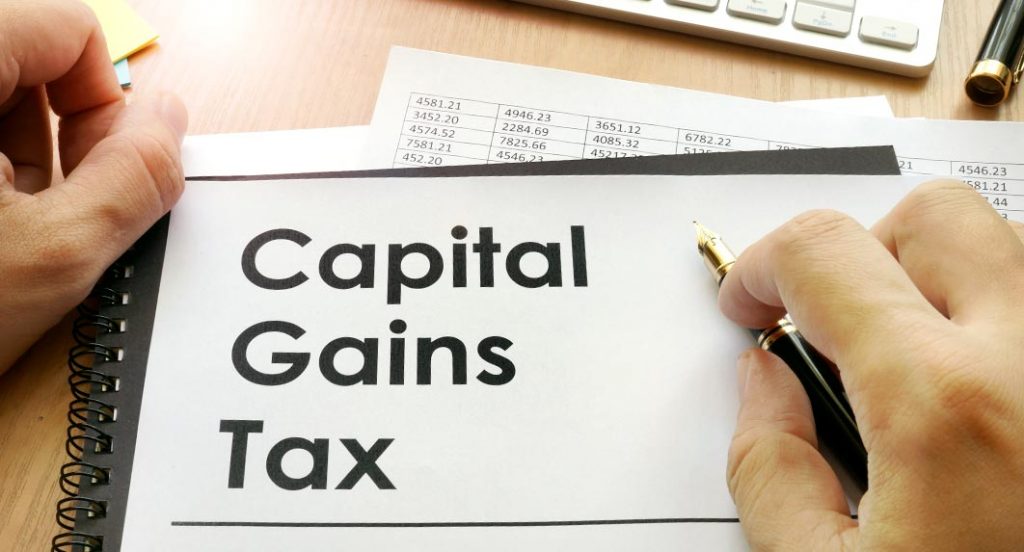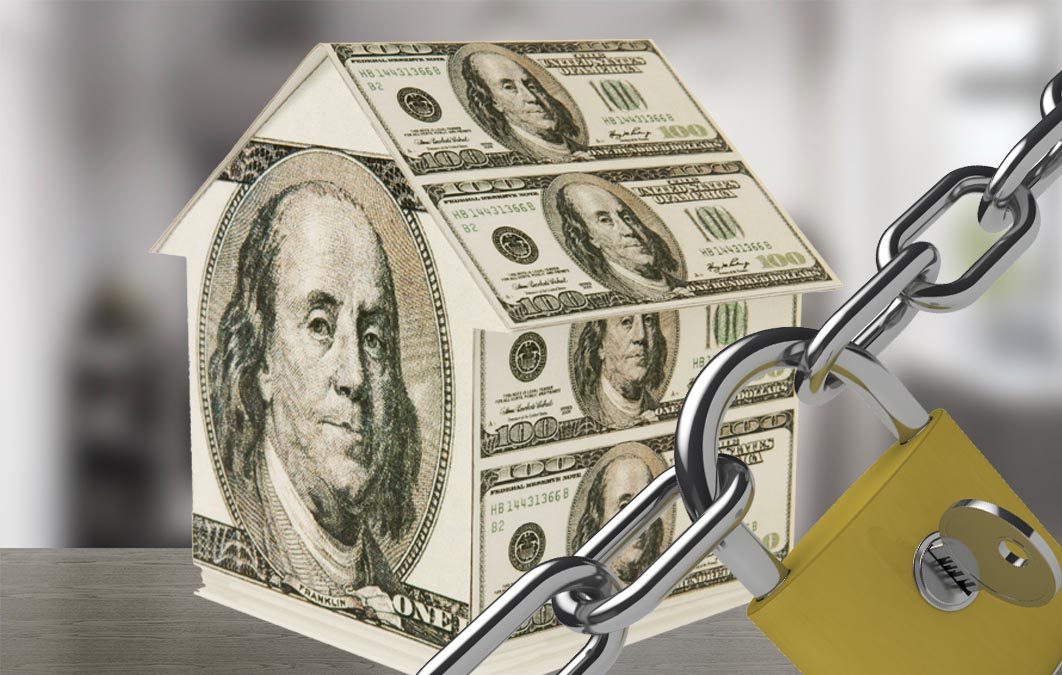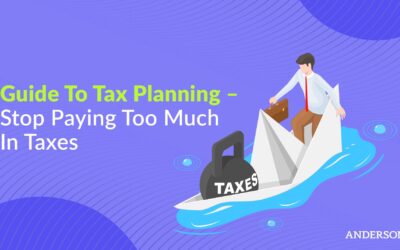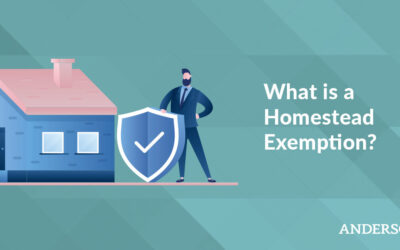Updated September 28, 2021
A capital gains tax on real estate is a fee you pay when you sell a property, or capital asset, for more than you paid. Experienced investors use every available strategy in order to lower their capital gains tax liability. By understanding the critical details of the capital gains tax, the best methods can be utilized for minimizing taxes on your property investments.
Frequently Asked Questions About Capital Gains Tax
- Can capital gains tax be deferred?
- How capital gains tax is calculated
- What capital gains tax will I pay?
- Can capital gains tax be avoided?
- Other methods of avoiding capital gains tax
- Will Trump’s tax plan change the current tax code?
- How an advisor can help reduce your taxes
- Can capital gains tax be deferred?

Free Strategy Session with an Anderson Advisor
Receive a detailed risk assessment to assist in lowering problem areas that could wipe out all of your assets with one wrong move. Speak with an Anderson Professional Advisor to get your FREE Strategy Session.
Limited-Time Offer: ($750 value.)
Capital Gains Deferment
One such strategy for postponing capital gains tax is to defer your tax liability. For this strategy to apply, the real estate must be real property and used for business or held for investment purposes. This strategy does not apply to real estate property held for personal use. The way to postpone capital gains tax on real estate is to exchange your land or property for like-kind property. The transaction is known as a 1031 exchange, according to Section 1031 of the Internal Revenue Code. If your property qualifies for a like-kind exchange, your tax liability gets deferred. Meaning, you won’t have to pay any tax on the exchange of property.
You will only pay tax when your replacement property is sold at a later date. As with any IRS policy, there are rules and qualifying circumstances. One important requirement of a 1031 exchange is that the property you’re acquiring during the exchange must be of equal or greater value to the property you exchanged. Any net proceeds received on the exchange must be used for the acquisition of the new property. Otherwise, the proceeds will be subject to tax. There are several other stipulations applicable to like-kind exchanges, that should be covered and discussed in greater detail with a professional to ensure your transaction qualifies as a 1031 exchange.
How capital gains tax is calculated
When you profit from flipping an investment property, the sale will result in a capital gain. If you lose money on your flipped house(s), the tax classification treats the sale as a capital loss. To estimate how much you’ll pay in capital gains tax on the sale of your capital asset, you can perform a straightforward calculation.
The calculation starts with the purchase price of your land or real estate property. Then you subtract the purchase price from the sales price. Next, you’ll estimate your taxable income for the year. Using the federal income tax brackets, and your filing status, determine which percentage of tax will apply to your gain. Use the short-term capital gains tax brackets if you held the property for less than one year. And use the long-term capital gains tax brackets, if you held the property for more than one year.
Here is an example of a capital gains tax calculation:
- Purchase Price: $200,000
- Sales Price: $300,000
- Yearly Income: $140,000
- Tax filing status: Single
- 2018 federal income tax bracket: 24%
- Short-term capital gains tax rate 2018: 24%
- Long-term capital gains tax rate 2018: 15%
In this example, if the flipper held onto his property for less than a year, he would pay 24 percent tax on his $100,000 profit. However, by holding onto the property for more than one year from the purchase date, the tax on the capital gain of $100,000 would only be 15%.
What capital gains tax will I pay?
If your capital asset was held for less than one year, then you’ll be taxed according to your ordinary income tax bracket, somewhere between 10% to 37%. On the other hand, if you’re applying the long-term capital gains tax rates, then you’ll be subject to much lower rates. Typically, taxpayers pay approximately 15% of their profits, not to exceed a tax rate of 20%.
When does my capital gains tax have to be paid?
Officially, taxes are due in the period when the income was received. If the amount of capital gains tax is small relative to your income, then you can wait to pay those taxes when you file your tax return on April 15th. However, if you make quarterly tax payments, then pay the capital gains tax in the quarter you received the income.
Can capital gains tax be avoided?
One method of eliminating capital gains tax on real estate is to utilize tax-exempt vehicles, such as Charitable Remainder Trusts. There are two main types of charitable remainder trusts: Charitable Remainder Annuity Trusts (CRAT) and Charitable Remainder Unitrusts (CRUT). These kind of trusts are irrevocable, meaning they can’t be modified or terminated without permission from the beneficiary.
CRATs are tax-exempt trusts that distribute an annual fixed annuity over a specified time, not to exceed 20 years. Once the term has been reached, the amount of money remaining inside the trust gets transferred to a charity of the beneficiary’s choice. CRUTs distribute a fixed percentage based on the balance of the assets inside the trust. According to IRS rules, the fixed percentage must be at least 5% of the trust’s value. When CRUTs are established, you’re able to benefit from a tax deduction. The tax deduction is based on the value of the gift and can be spread over five years.
The value of your gift doesn’t equate to the value of the property you put inside the trust, however. To calculate the value of the gift you donated to the trust, we’ll use the following example. Say you donated property with a value of $500,000. Based on the terms of the trust, you expect to receive $100,000 worth of payments. That means the value of the trust equals $400,000, which is the amount of your total deduction.
Other methods of avoiding capital gains tax
Consider entity structuring
Entity structuring can play a vital role in reducing capital gains taxes. Typically, real estate investors, entrepreneurs, and sole proprietors use the method of entity structuring to protect their capital assets from litigation. Setting up entities such as LLC’s, land trusts, and corporations can also provide anonymity to the owner and beneficiary of the property and can help reduce tax liabilities.
Sell after you’ve experienced capital losses
If you experience investment losses from stocks, real estate properties, etc., you can time the sale of your profitable investment property, so the capital gains you’ll realize can net against your capital losses. This strategy will help lower the tax that you’ll pay on the overall capital gain.
Keep a record of your home improvements or selling expenses
Making improvements or additions to your capital asset can increase the overall tax basis of the property and help reduce the capital gain when you decide to sell. By increasing the basis in the asset, you’ll lessen the gap between the sales price and your original purchase price. The IRS defines property improvements as something that will improve the home, or restore it to an original condition. Be sure to keep detailed records of your spending. The IRS may request to see copies of your receipts upon filing your taxes.
Track your selling costs
You can reduce the sales price of the home by the costs incurred to sell the home. As a result, your capital gain will be less. There are some costs that don’t apply under this rule, like cleaning and maintenance expenses. However, expenses such as broker commissions, closing costs, escrow fees, settlement fees, appraisal fees, transfer taxes and many others can be used to offset the amount of a capital gain.
Convert your rental property
The IRS offers a tax exclusion when selling your primary residence. For taxpayers whose filing status is ‘single,’ the exclusion is $250,000. For taxpayers whose filing status is ‘married,’ the exclusion is $500,000. If you own a rental property and are looking to sell it, there is a way to qualify for this tax benefit. To take advantage of the exclusion, you would have to move into the home to minimize capital gains tax. In order to meet the qualifications of the exclusion, the following conditions need to be true: (1) You have been the owner of the property for at least five years, and (2) You have lived in the home for at least two years before selling it.
If you meet these two conditions, you can claim a portion of the exclusion. The exclusion becomes reduced by the number of years the home was used as an investment property. For example, let’s say you owned a property for 10 years. You rented it for the first five years, then lived in it for the next five years. Therefore, the home was considered to be an investment property for 50 percent of the time you owned it. That means you are eligible to exclude 50 percent of the gain from your tax liability.
Will Trump’s tax plan change the current tax code?
The Trump Administration is seeking to change the federal capital gains tax treatment. His proposed tax cut wouldn’t lower the current capital gains tax rate, it would only adjust the investor’s tax liability based on the rates of inflation. If the tax cut were to pass, those paying capital gains tax would only pay taxes on profits that are above the rate of inflation.
How an advisor can help reduce your taxes
Even with the massive capital gains tax rates imposed on real estate investors, strategies to minimize and avoid these high taxes are readily available and have been proven to be effective. Real estate asset protection through tax deferment (like-kind exchanges), charitable remainder trusts, and entity structuring are all viable options a tax advisor may recommend. They are extremely useful for any real estate investor wanting to maximize both short and long-term profits.
If you’re a real estate flipper or investor, seeking to lower your taxes while increasing asset protection, contact Anderson Business Advisors today for a FREE 45-minute strategy session. You owe it to yourself to speak with one of our advisors during a free, 30-minute strategy session. We’re confident that we offer the best combination of tools and strategies to help you reach your investment goals.
Tax & Asset Protection Workshop
Learn about Real Estate & Asset Protection at our next
FREE LIVE STREAM
















